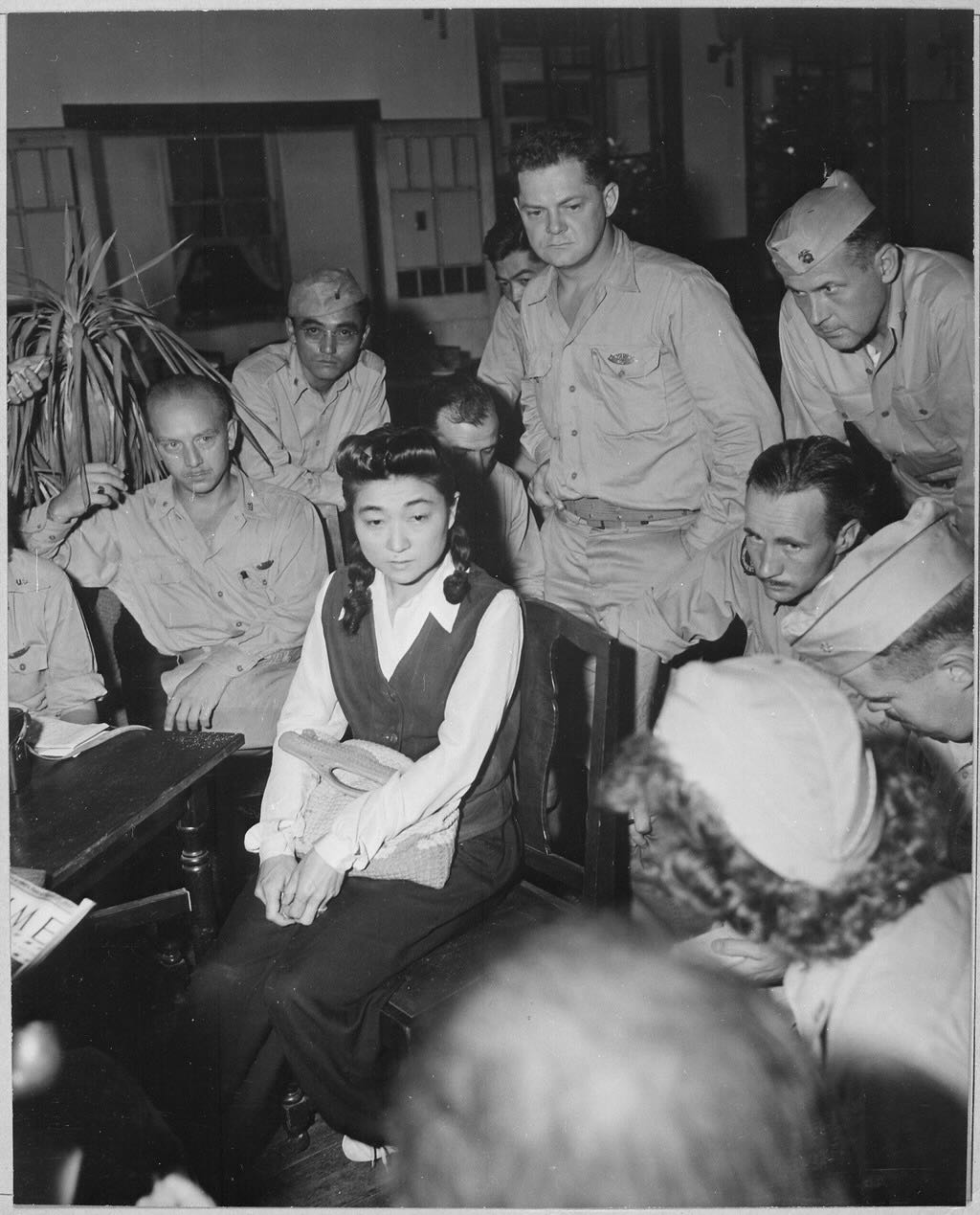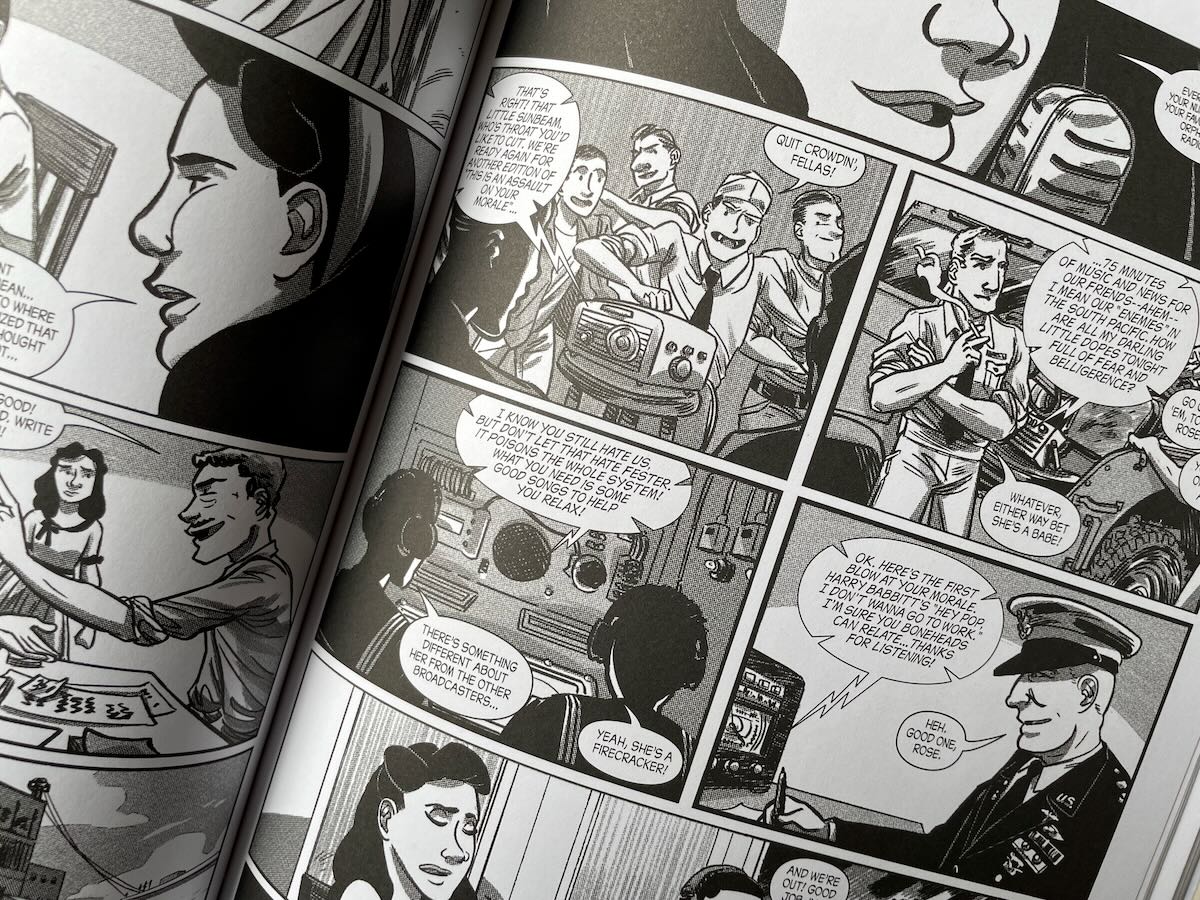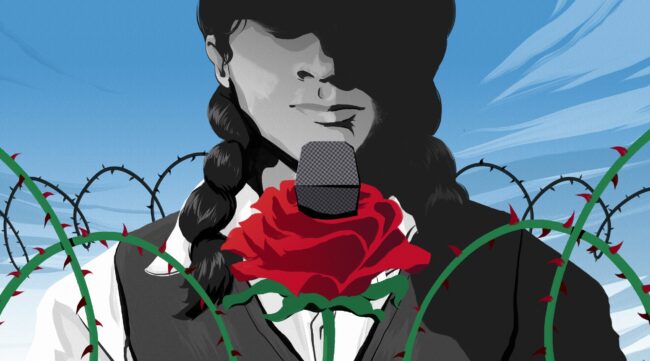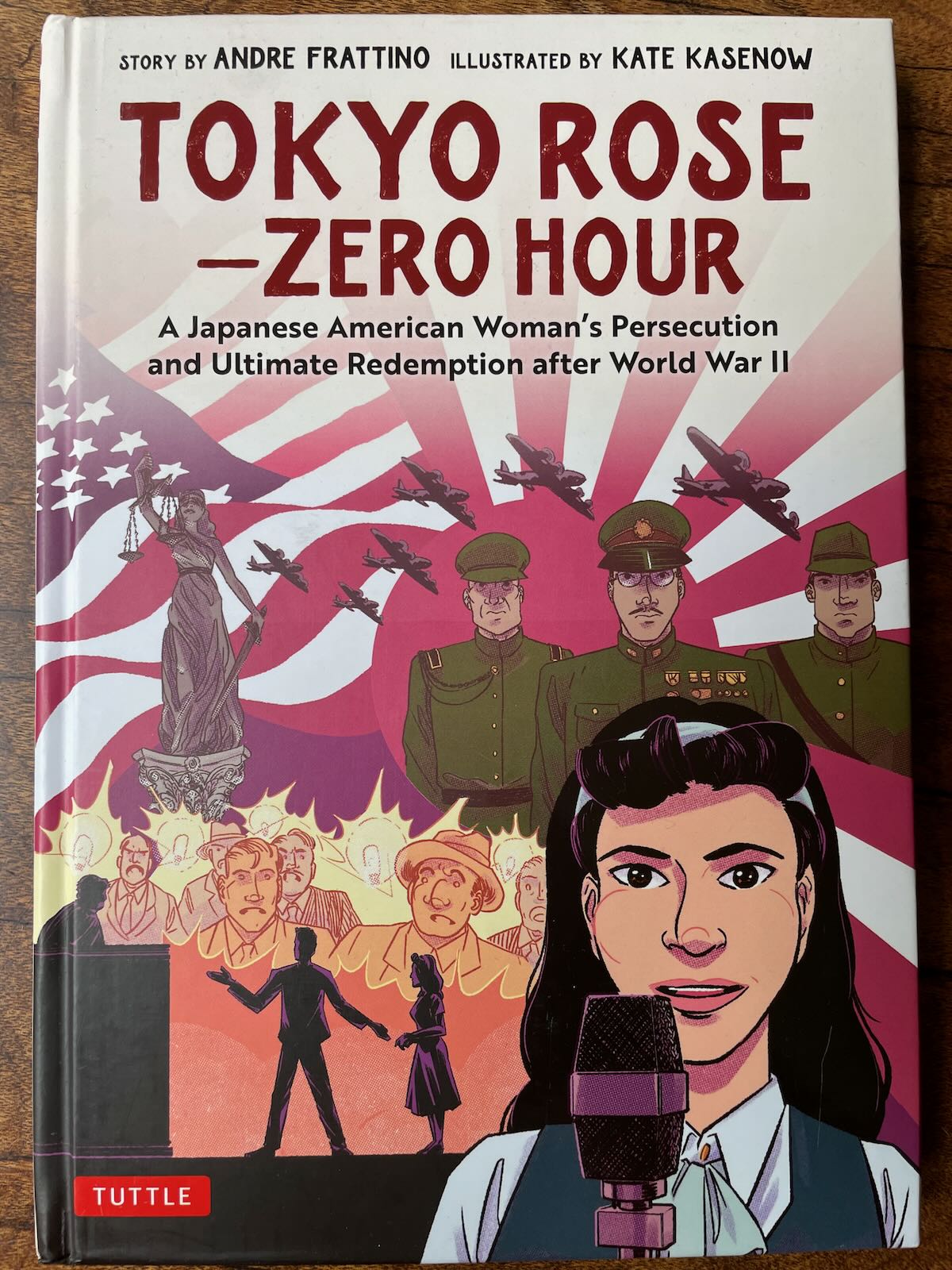 If you’ve been an SWLing Post reader for long, you’ll likely know that I’m a Word War II history buff and I especially enjoy exploring the deep rabbit hole that is WWII radio and propaganda.
If you’ve been an SWLing Post reader for long, you’ll likely know that I’m a Word War II history buff and I especially enjoy exploring the deep rabbit hole that is WWII radio and propaganda.
Radio broadcasts were heavily used by all of the players in WWII, and some prominent personalities emerged from the Axis propaganda machines: most notably Axis Sally and Lord Haw Haw in the European theatre, and Tokyo Rose in the Pacific theatre.
Iva Toguri
Although Tokyo Rose was the name given to an array of female personalities on Radio Tokyo (NHK), at the end of WWII Iva Toguri was widely accused of being the “real” Tokyo Rose. After attempting to return to her native US, she was arrested, tried, and became the seventh person in U.S. history to be convicted of treason.
Her trial in 1949 resulted in a conviction on one of eight counts of treason and she received a 10 year sentence. Her sentence was eventually cut to 6 years due to good behavior.
U.S. President Gerald Ford pardoned Toguri in 1977 based on new evidence that important witnesses in her treason trial had been forced to lie.
The story of Iva Toguri is truly one of being in the wrong place at the wrong time.
Tokyo Rose – Zero Hour: A Japanese American Woman’s Persecution and Ultimate Redemption After World War II
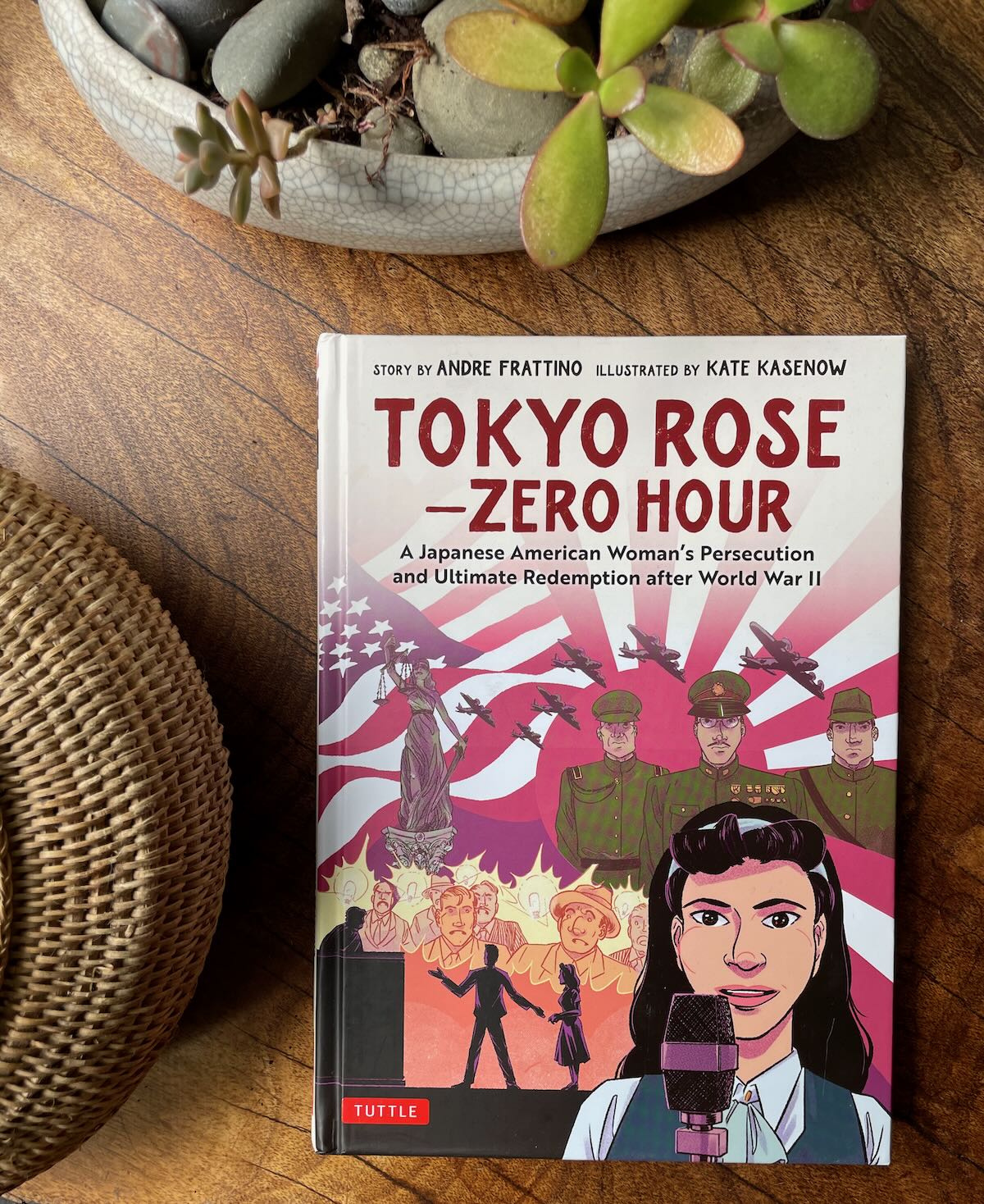 If you enjoy comics/graphic novels and WWII history, then you’re in for a treat. Last week, I purchased a new graphic novel about the life and trial of Iva Toguri written by Andre Frattino and illustrated by Kate Kasenow.
If you enjoy comics/graphic novels and WWII history, then you’re in for a treat. Last week, I purchased a new graphic novel about the life and trial of Iva Toguri written by Andre Frattino and illustrated by Kate Kasenow.
This book is beautifully illustrated in black and white and the author does an amazing job of telling the story of Toguri, woven into a narrative, while keeping it historical accuracy.
It’s obvious a lot of research went into this particular graphic novel.
If this sounds like something that would interest you, I highly recommend it.
Twenty Thousand Hertz: Tokyo Rose
Many thanks to SWLing Post contributor, Wilbur Forcier, who recently shared a link to the latest episode of the excellent Twenty Thousand Hertz podcast. This entire episode also explores Iva Toguri’s life and involvement in NHK’s propaganda broadcasts.
I also highly recommend listening to this episode.

